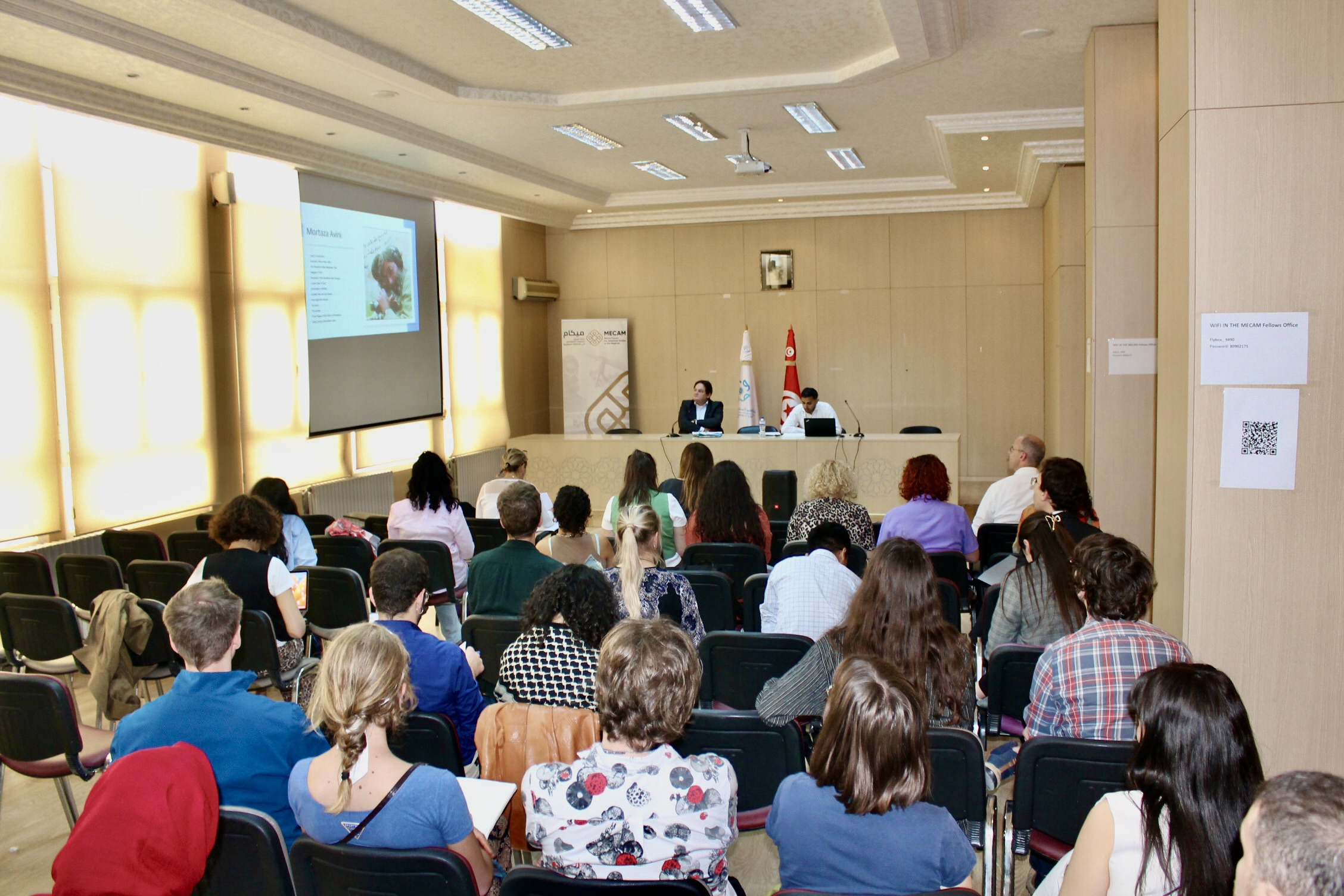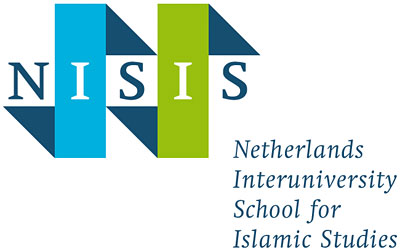Events
Report ENIS Spring School ’25: ‘Imagining Futures: Dealing with Disparity‘, 27 – 30 May, 2025

Every year, the Netherlands Interuniversity School for Islamic Studies (NISIS) organises a Spring School in collaboration with our partners from several European countries in the framework of the European Network for Islamic Studies (ENIS). This year, our Spring School took us to Tunis, the capital of Tunisia, where we were hosted at the University of Tunis and organised around the theme of “Imagining Futures: Dealing with Disparity”. On Tuesday, the first day of the Spring School, we were welcomed by a representative of the Faculty of Human and Social Sciences at the University of Tunis, Amel Guzani, the director of the Merian Centre for Advanced Studies in the Maghreb (MECAM) hosted by the University of Tunis, Julius Dihstelhoff, and the director of NISIS, Joas Wagemakers, who spoke on behalf of ENIS.
Content-wise, the event was kicked off by Jörg Matthias Determann (Virginia Commonwealth University in Qatar), who gave a fascinating keynote lecture about “Imagining Futures in Muslim Societies”, using science-fiction literature and utopian visions of the future from Saudi Arabia, Iran and beyond. He also showed how these developments are viewed quite differently from an Islamic point of view, with some presenting themselves as clear opponents to science fiction films and literature, while others engage in it themselves. This presentation generated a lot of questions and discussion and ensured that we were off to a very good start, which was continued by interesting presentations by (R)MA-students and PhD-candidates on, among other subjects, aspirations and visions for the future, focussing on education in Germany, cinema in Iran and urban life in Cairo.
After a nice lunch, we started the afternoon session with a keynote lecture by Albrecht Fuess (Philipps University Marburg), which focussed on Muslims in Europe. Presenting numerous statistics on Muslims in France, Germany and Great Britain since the twentieth century, he pointed to various factors that have shaped and influenced the life and development of Islamic communities in Europe. This culminated into five different future scenarios, of which he deemed “co-existence” the most likely. This presentation was followed by sessions on “Disparities in European Muslim Communities” and “Disparities in Arab Writings” by (R)MA-students and PhD-candidates, which included talks on racism in Tunisian literature, identity formation among Muslims in Lithuania and Islam among second/third-generation Turkish immigrants in Germany.
The second day of the ENIS Spring School was dedicated to an excursion to the old city of Tunis. Under the capable supervision of a very knowledgeable guide, we visited various mausolea, bathhouses, madrasas and a former synagogue, all of which to varying degrees betrayed the influences from various cultures that have affected Tunisia throughout the centuries. This not only showed Tunisia’s long history, but also the numerous dynasties of varying cultural and religious backgrounds that dominated the country and the region. This was even more clearly displayed in the Bardo Museum, which we visited in the afternoon. Housed in a building whose ceilings and walls were a wonderful mix of cultural, religious and architectural styles, the guide showed us some beautiful mosaics that had mostly been amazingly preserved.
On day three of the Spring School, we started our programme with a keynote lecture by Hayet Amamou (University of Tunis), whose talk was a welcome addition to what we learned during our excursion the day before. In her lecture, Professor Amamou focussed on the mobility of people in the Maghreb over the centuries prior to the colonial period and sought to trace the material and immaterial heritage of the displacement of people before French rule of the region. This was followed by presentations by (R)MA-students and PhD-candidates in two different sessions and which included papers on the Muslim community in Linxia (China) under Xi Jingping’s presidency, headscarves and the future of women in India and identity preservation among Sahrawis.
After lunch, Maurits Berger (University of Leiden) talked about “Muslim Future(s)”. His keynote lecture focussed on how an enormously varied Muslim community in Europe is working its way towards the future, what that future entails and whether there is even a clear image of a desired future. Central in his talk was the notion of imagination, which is a much broader, more creative and more positive way of looking at the future than the problem-based and more negative approach that often underpins discussions of the future. This talk provoked a lot of discussion among participants, which spilled over into the break. The next session consisted of presentations by (R)MA-students and PhD-candidates and included talks on the role of women in the Jordanian Muslim Brotherhood, the call for equality within the Egyptian branch of the same organisation, water management in northeastern Tunisia, visions for the future and their legal implications in Algeria and European exploitative ecological policies in Algeria.
The fourth and final day was kicked off by Asma Helali (University of Lille), who gave a keynote lecture on a new approach to the founding textual sources of Islam: the Qur’an and the hadith. After a brief historical overview of the canonisation of the Qur’an and the development of seven different readings (qira’at) within Sunni Islam, she showed us a number of Qur’anic fragments. Rather than focussing on the actual texts, however, she put the focus on signs, notes, corrections, comments and colours (paratext) added to the texts themselves to offer a new perspective on these documents as a religious genre. This was followed by papers presented by (R)MA-students and PhD-candidates on the economic ideas of Ibn Taymiyya (1263-1328), different visions on being modern in Southeast Asia and non-religious (la dini) Arabs in Muslim societies.
We closed the day with an evaluation of the ENIS Spring School in which all those present were involved. Participants commented on what they had learned, how they had reassessed the theme of “Imagining Futures: Dealing with Disparity” over the past week, whether they would recommend others to attend the ENIS Spring School and what they could in terms of advice for next year. After presenting the staff at MECAM with a well-deserved gift to thank them for their tireless efforts to make us feel welcome, we subsequently made our way to the Institut de Recherche sur le Maghreb Contemporain (IRMC), to which its director, Katia Boissevain, had kindly invited us. We were informed about the activities of the institute and its library and were provided with information about Arabic courses and possibilities for grants and visiting research fellowships. This activity closed our four-day long ENIS Spring School, which was very much the interesting, fruitful and inspiring event we had hoped for. NISIS is grateful to all the keynote speakers, the staff at MECAM, the ENIS team (both those present in Tunis as well as others) and, of course, the participants for their contributions and we look forward to new possibilities to collaborate in the future.

